D’Addario Guitar Hand Exerciser Review
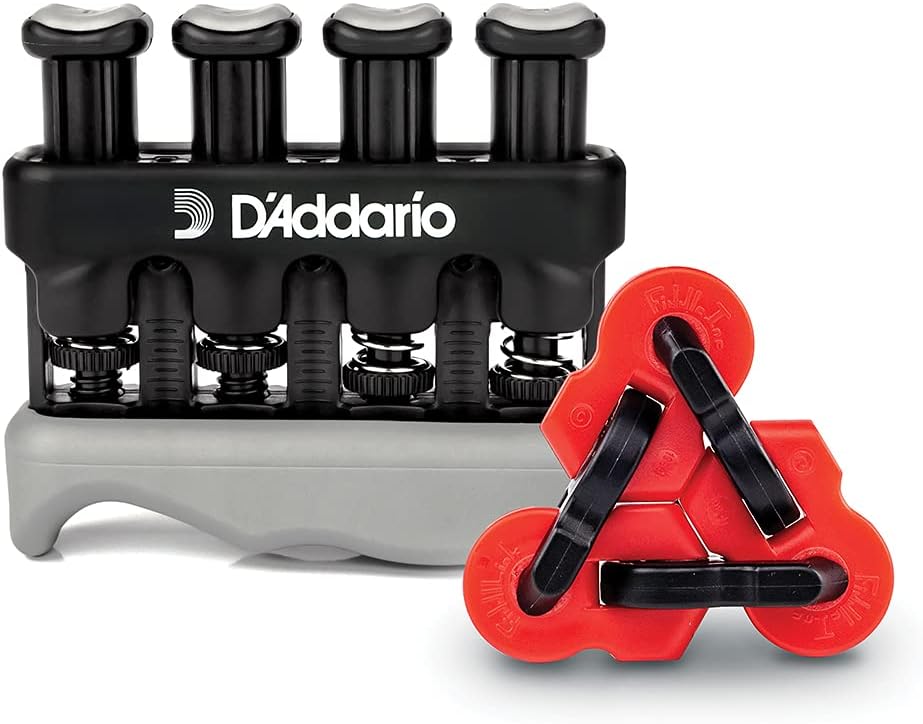
Reviewing the D’Addario Hand Exerciser? Picture a delightful gadget promising to rescue moribund fingers and flagging grip strength. Discover features & benefits now!
Shubb (Brushed Nickel) Capo Review
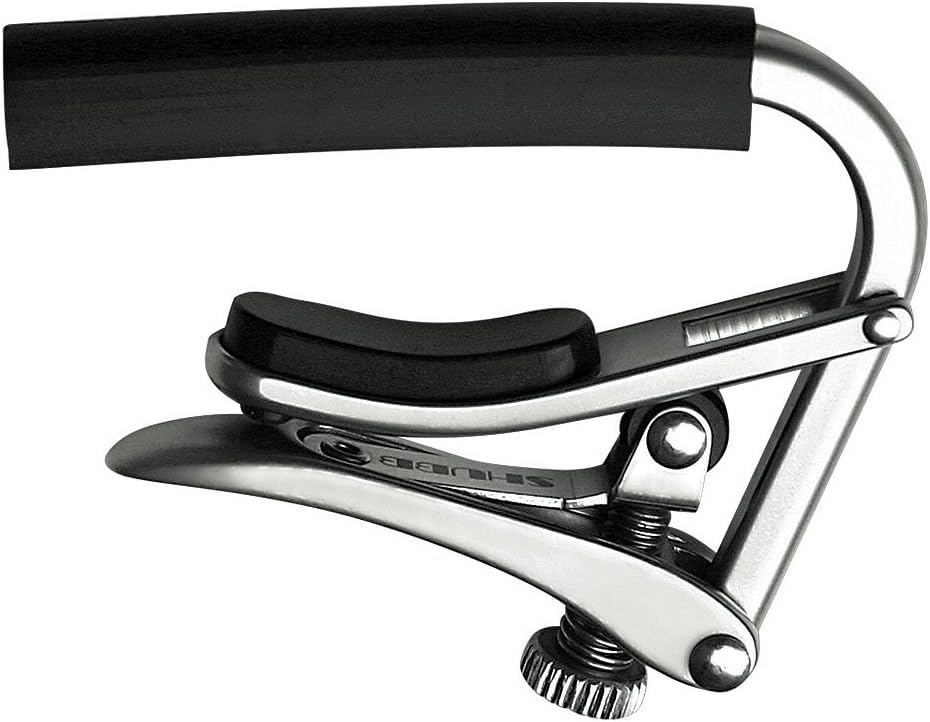
Say goodbye to tuning troubles with the Shubb Standard Series Acoustic Guitar Capo. Discover why musicians have cherished its design, ease, and reliability for 35+ years.
Dunlop System 65 Complete Guitar Setup Kit Review
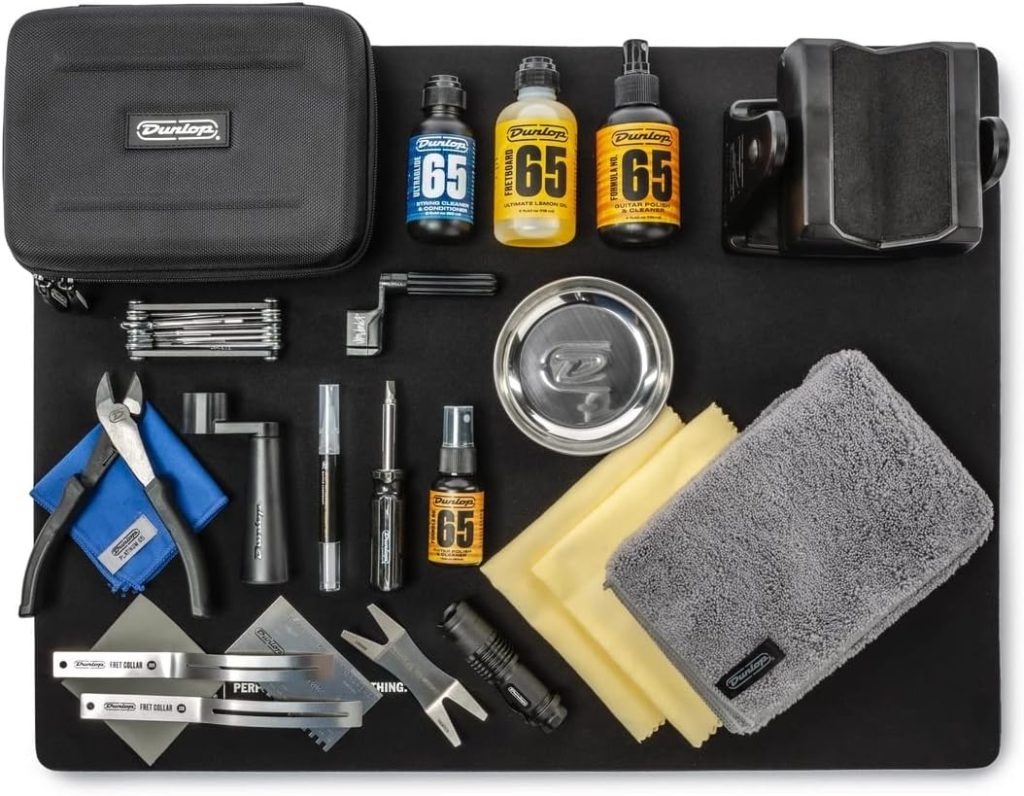
Discover the Jim Dunlop System 65 Complete Guitar Setup Kit in this cheeky review. See how it transforms your guitar from drab to fab with ease and style!
Ernie Ball Musician’s Tool Kit Review
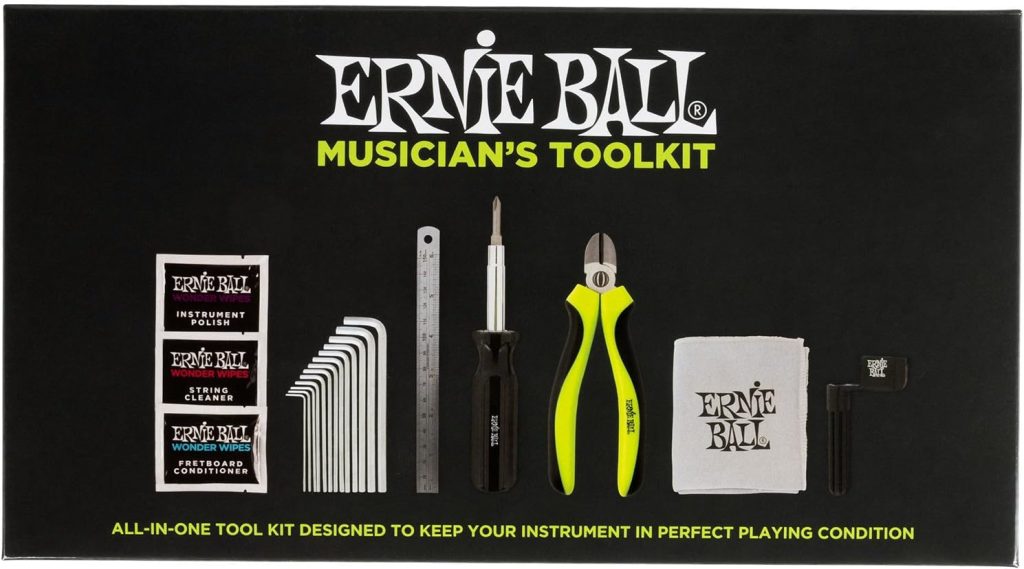
Discover how the Ernie Ball Musician’s Tool Kit turns chaotic instrument maintenance into an organized delight, with all essential tools in one handy case.
StewMac Guitar Cleaning Kit Review
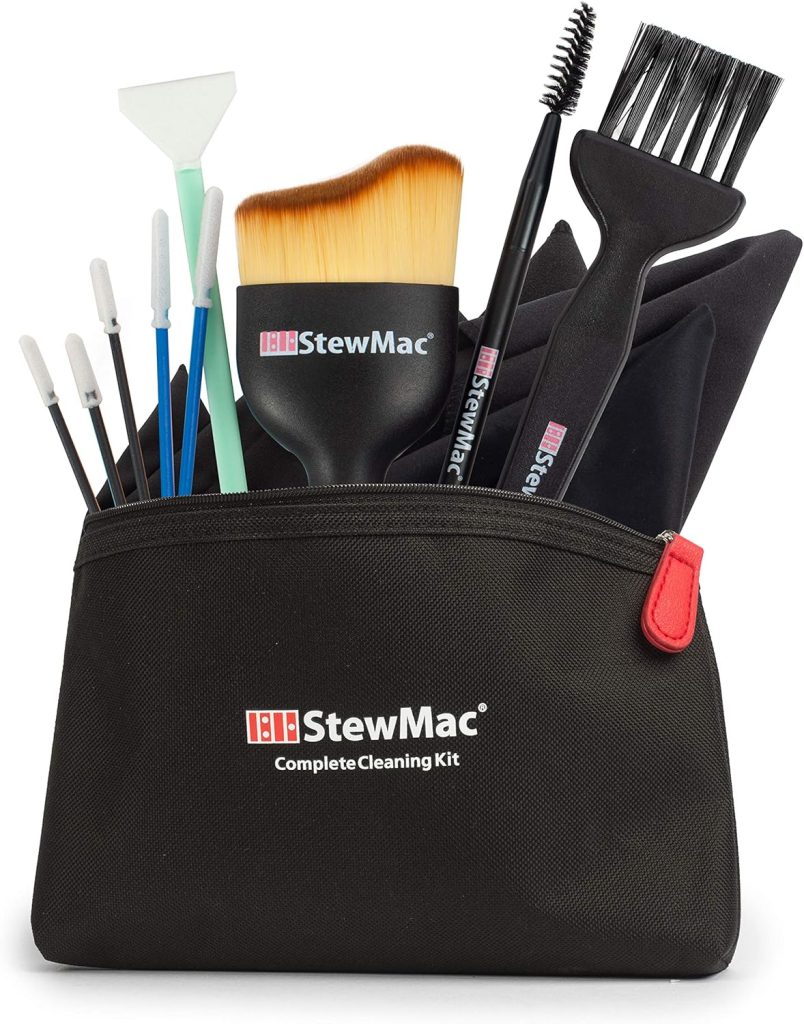
Discover the ultimate way to keep your cherished guitar immaculate. Read our StewMac Guitar Cleaning Set Review to see why it could be your new music essential! 🎸✨
Exilir Phosphor Bronze w/ Nanoweb Acoustic String Review
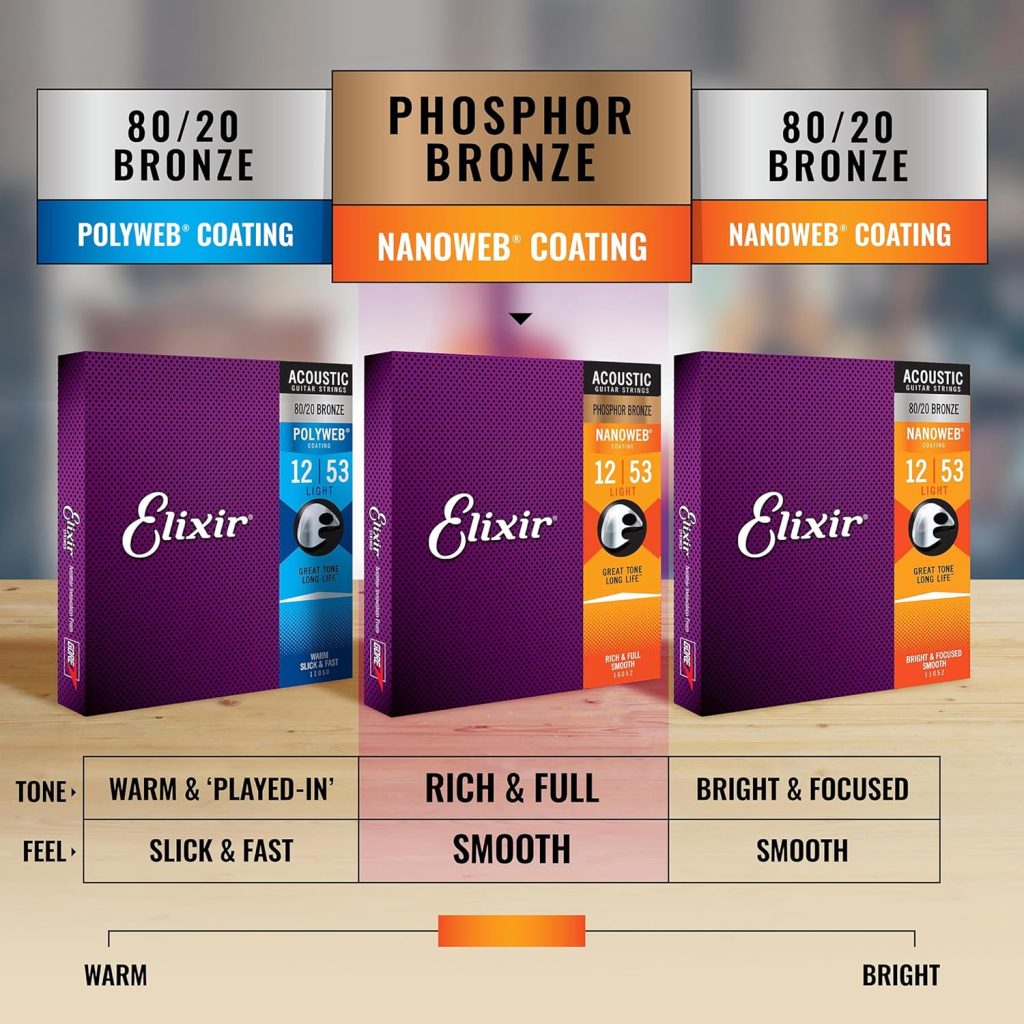
Discover the sophisticated charm of Elixir Phosphor Bronze Acoustic Strings. Elevate your tone and enjoy unmatched durability and comfort with NANOWEB Coating.
D’Addario Flat Tops Phosphor Acoustic Guitar Strings Review
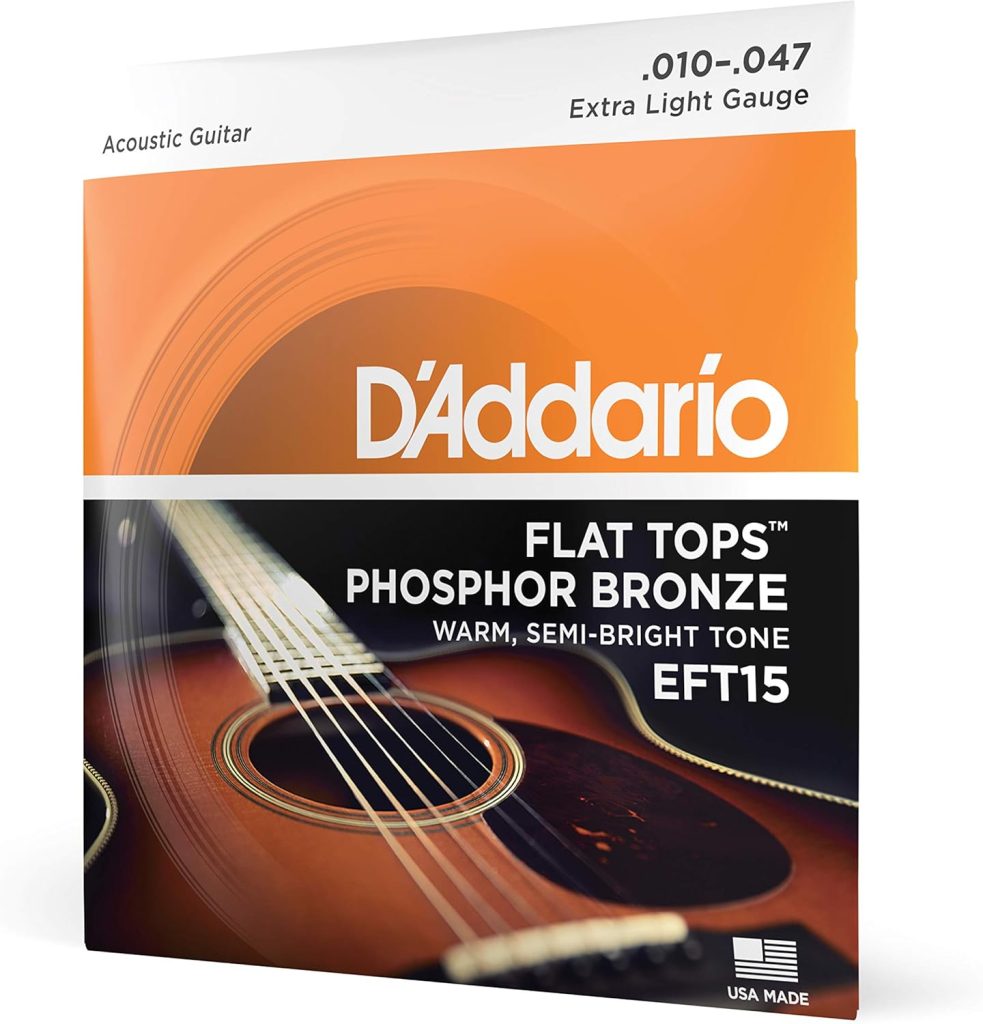
Discover the warm, balanced tones of D’Addario Flat Tops Phosphor Acoustic Guitar Strings. Find out if EFT15 Extra Light, 10-47 strings hit the right note for your sound.
Amplifiers
Guitar amplifiers are essential for projecting and shaping the sound of electric guitars, and they play a crucial role in defining your tone. Choosing the right amplifier can significantly enhance your playing experience, whether you’re practicing at home or performing on stage. Types of Guitar Amplifiers 1. Tube Amplifiers Warm, Rich Tone: Tube amplifiers, also known as valve amplifiers, are revered for their warm, rich, and dynamic tone. They use vacuum tubes to amplify the signal, producing a natural compression and harmonic distortion that many guitarists love. Responsive to Playing Dynamics: Tube amps are highly responsive to your playing dynamics, delivering a nuanced and expressive sound. However, they require regular maintenance and are generally heavier and more expensive than other types. 2. Solid-State Amplifiers Durable and Reliable: Solid-state amplifiers use transistors instead of tubes, making them more durable and reliable. They are often more affordable and require less maintenance, making them a popular choice for beginners and gigging musicians. Consistent Tone: While solid-state amps may not offer the same warmth as tube amps, they provide a consistent and clean tone. They are ideal for players who need a reliable amp that performs well in various settings. 3. Modeling Amplifiers Versatile Sound Options: Modeling amplifiers use digital technology to emulate the sound of various amp types, effects, and speaker cabinets. They offer a wide range of tones and are perfect for players who want versatility without needing multiple amps. Integrated Effects: Many modeling amps come with built-in effects, making them a convenient all-in-one solution for players who enjoy experimenting with different sounds. 4. Hybrid Amplifiers Best of Both Worlds: Hybrid amplifiers combine tube and solid-state technology, offering the warmth of a tube amp with the reliability and affordability of a solid-state amp. They often feature a tube preamp and a solid-state power amp, providing a balanced tone. Balanced Tone and Performance: These amps are a great option for players who want the benefits of tube sound without the full cost or maintenance requirements. Choosing the Right Amplifier When selecting a guitar amplifier, consider the following: Power and Wattage: Choose an amp with the appropriate wattage for your needs. Lower wattage amps (5-20 watts) are great for practice and small gigs, while higher wattage amps (30 watts and above) are suitable for larger venues. Portability: Consider the size and weight of the amp if you plan to move it frequently. Smaller amps are easier to transport, while larger amps provide more power and depth. Tone and Features: Think about the tone you want to achieve and whether you need built-in effects, multiple channels, or other features that suit your playing style. Conclusion Guitar amplifiers are key to shaping your sound and enhancing your playing experience. Whether you prefer the warmth of a tube amp, the reliability of a solid-state amp, the versatility of a modeling amp, or the balance of a hybrid amp, choosing the right amplifier is crucial for achieving your desired tone. At My Guitar Advisor, we provide in-depth reviews of guitar amplifiers to help you find the perfect match for your playing style and needs. With the right amplifier, you’ll be able to express your musicality fully, whether in the studio, on stage, or at home. edit post Amplifiers Fender Frontman 20G Guitar Amp Review edit post Amplifiers Fender Frontman 10G Guitar Amp Review adminmyguitaradvisor.com
Cases
A guitar case is essential for protecting your instrument during transport and storage. With various types available, selecting the right case can safeguard your guitar from damage and ensure its longevity. Types of Guitar Cases 1. Hard Cases Hard cases offer robust protection with a rigid exterior that shields your guitar from impacts, moisture, and dust. They are ideal for traveling, storing, and keeping your guitar in excellent condition. Hard cases often come with padded interiors to prevent scratches and bumps. 2. Gig Bags Gig bags are lighter and more portable than hard cases, making them convenient for everyday use and transport. They typically feature padded shoulder straps for easy carrying and are suitable for short trips, lessons, or local gigs. While they offer less protection than hard cases, they provide sufficient security for most casual use. 3. Custom Cases Custom cases are tailored to fit specific guitar models and designs, providing a snug and secure fit. They offer the highest level of protection and can include additional compartments for accessories and personal items. Custom cases are an excellent choice for high-end instruments or for musicians who frequently travel. Choosing the Right Case When selecting a guitar case, consider the following: Fit: Ensure the case fits your guitar snugly to prevent movement and potential damage. Protection Level: Choose between hard cases for maximum protection or gig bags for lighter, more portable options. Features: Look for cases with additional features such as storage compartments, adjustable straps, and comfortable handles for ease of use. Conclusion A quality guitar case is crucial for protecting your instrument and ensuring its longevity. Whether you need the durability of a hard case or the convenience of a gig bag, choosing the right case will help keep your guitar safe and ready for your next performance or practice session. At My Guitar Advisor, we provide detailed reviews of guitar cases to help you find the best option for your needs. With the right case, you can travel with confidence and keep your guitar in top condition. Accessories, Cases, Cases Gearlux Dreadnought Acoustic Guitar Hard Case Review Aaron de GrassiOctober 11, 2024 edit post Accessories Gearlux Dreadnought Acoustic Guitar Hard Case Review edit post Accessories CAHAYA 41 In Acoustic Guitar Bag Review adminmyguitaradvisor.com
Strings
Guitar strings are crucial for achieving the right tone and playability for your instrument. Selecting the appropriate strings can enhance your sound, feel, and overall playing experience. Types of Guitar Strings 1. Material Nickel-Plated Steel: These strings offer a bright, balanced tone and are commonly used on electric guitars. The nickel plating helps prevent corrosion and provides durability. Pure Nickel: Known for their warm, vintage sound, pure nickel strings are often favored by players seeking a classic tone. They offer a smooth feel and slightly lower tension. Bronze: Bronze strings produce a bright, articulate sound with excellent projection. They are commonly used on acoustic guitars and are known for their clarity and warmth. Phosphor Bronze: These strings are coated with a phosphor bronze alloy, providing a rich, warm tone and extended lifespan. They are popular for acoustic guitars due to their longevity and balanced sound. Stainless Steel: Stainless steel strings are highly resistant to corrosion and offer a bright, crisp tone with a lot of sustain. They are suitable for both electric and acoustic guitars and are favored by players looking for durability. 2. Gauge Light Gauge: Light gauge strings (typically .009 to .042) are easier to play and bend, making them ideal for beginners and players who prefer a softer feel. They are commonly used in genres like pop and blues. Medium Gauge: Medium gauge strings (around .010 to .046) offer a balance between playability and tone. They provide more volume and sustain compared to light gauge strings and are versatile across various styles. Heavy Gauge: Heavy gauge strings (.011 to .052 and above) are thicker and offer a stronger, fuller tone with increased sustain. They are favored by players who prefer a firmer feel and use alternate tunings or heavier styles. 3. Coated vs. Uncoated Coated Strings: Coated strings have a thin layer of protective coating that extends their lifespan by reducing oxidation and wear. They maintain their tone longer and are less prone to corrosion. Uncoated Strings: Uncoated strings offer a traditional feel and tone but may require more frequent replacement. They provide a more natural sound and are preferred by some players for their organic feel. Choosing the Right Strings When selecting guitar strings, consider the following: Material and Tone: Choose a material that suits your desired tone and playing style. Different materials offer varying tonal qualities and durability. Gauge and Playability: Select a gauge that matches your playing technique and genre. Lighter gauges are easier on the fingers, while heavier gauges provide a fuller sound. Coating: Decide between coated and uncoated strings based on your preference for longevity and tone quality. Conclusion Guitar strings are essential for shaping your instrument’s sound and playability. By understanding the different types and choosing the right strings, you can enhance your performance and achieve the tone you desire. At My Guitar Advisor, we provide comprehensive reviews of guitar strings to help you find the best options for your playing needs. With the right strings, you’ll enjoy a more satisfying and effective playing experience. Strings Martin Guitar Titanium Core Strings Review Tony RidgewayDecember 5, 2024 Strings Fender 80/20 Bronze Acoustic Guitar Strings Review Aaron de GrassiNovember 29, 2024 Accessories, Strings Exilir Phosphor Bronze w/ Nanoweb Acoustic String Review Tony RidgewayAugust 29, 2024 Accessories, Strings D’Addario Flat Tops Phosphor Acoustic Guitar Strings Review Aaron de GrassiAugust 23, 2024 edit post Strings Martin Guitar Titanium Core Strings Review edit post Strings Fender 80/20 Bronze Acoustic Guitar Strings Review edit post Accessories Exilir Phosphor Bronze w/ Nanoweb Acoustic String Review edit post Accessories D’Addario Flat Tops Phosphor Acoustic Guitar Strings Review adminmyguitaradvisor.com
